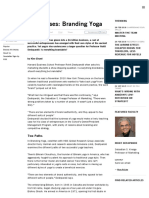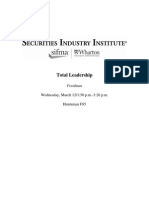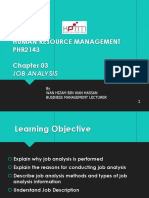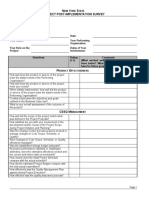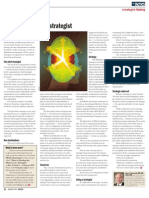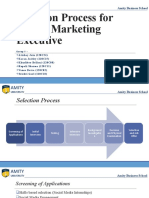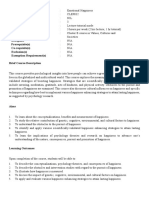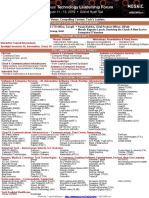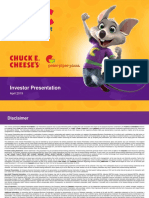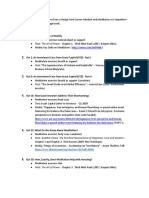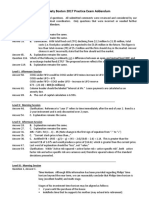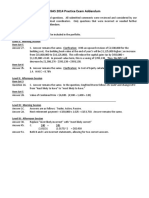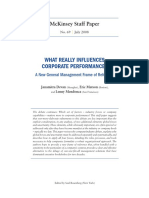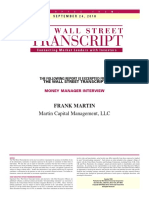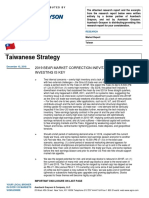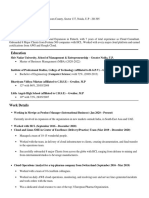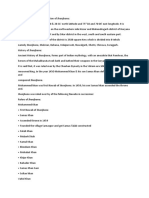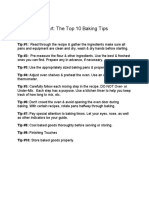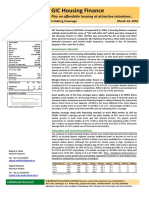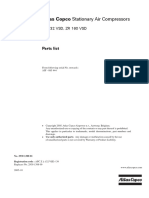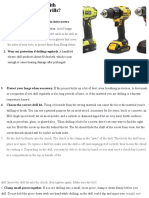Welcome
to The Happiness Advantage
Spring 2017 | Thursdays 5-6pm, 6-7pm
Location: 75 Evans | 1 Unit P/NP
Facilitator: Priya Shah | Email: pshah@berkeley.edu
Faculty Sponsor: Dr. Serena Chen, Department of Psychology
**Please do not contact Dr. Chen, Psychology personnel, or the DeCal board regarding enrollment**
Course Description:
“I’ll celebrate after I ____.”
Popular belief holds that if we fill that blank with our personal or career goal and aim for success in
achieving it, happiness will follow. Once we succeed, however, we form new goals and happiness
gets pushed farther and farther into the future. Inspired by recent groundbreaking research in the
field of positive psychology, Harvard alumnus and professor Shawn Achor posits a theory that
happiness fuels success, not the other way around. He has performed numerous experiments to
gather evidence to support his belief and compiled his findings in a book called The Happiness
Advantage.
Achor has found that priming a person’s brain for happiness will always increase their performance.
He bolsters this argument with research that shows that an increase in happiness not only helps the
individual improve their own focus and quality of work, but also creates a “ripple effect” which
benefits those around them. The seven strategies he suggests are capitalizing on positivity, adjusting
our mindset, retraining our brains, finding the right path to cope with defeat and stress, forming
manageable goals, making small adjustments to the prep work leading up to a task, and investing in
our social network. A simple change, such as recognizing one thing that you are grateful for each
day, has been proven to improve people’s happiness and, in turn, their performance. Achor
challenges everyone to become a scientist and learn about positive psychology through experience,
by conducting experiments and coming up with their own conclusions about what works best for
them.
The objective of this course is to socialize strategies that are proven to improve one’s outlook (and
happiness), have you try them for a period of 21 consecutive days, and then measure the tangible as
well as intangible (perceived) benefits to test Achor’s hypothesis. Working under the umbrella of
happiness, we will delve deeper into the practices of mindfulness (meditation), gratitude, and
kindness. We will explore these themes through guest speakers, literature on the topics, in-class
discussions, and four hands-on projects that challenge you to apply these practices to your daily
lives. The hope is that with continuous practice over the course of 21 days, these practices will
develop into habits that manifest more naturally and regularly.
Required Text:
The Happiness Advantage by Shawn Achor
Course Policies:
Attendance
• Class participation is a major component of your grade. As a result, attendance is mandatory.
• Excused absences include illnesses, doctor’s appointments, and other emergencies with
documentation. You must notify the facilitator by email in the event that you will be missing
class.
o Conflicts with midterm exams will be excused.
o Review sessions and meetings are unexcused.
1
� • Please be on time. Being late is disrespectful to the guest speakers and to your fellow
students.
• Chronic tardiness is not acceptable and will result in the equivalence of an absence.
o 2 tardies = 1 absence
• More than two unexcused absences or four tardies will result in a No Pass grade.
• The last class of the semester is REQUIRED in order to receive a passing grade. We will be
filling out course evaluations.
Assignments
In this class, we will explore core themes by discussing them in class and applying them to our lives.
The assignments are a tool for you to reflect on this process. The facilitator reserves the right to
request a redo of ay assignment if it does not meet requirements. All students must complete all of
the homework assignments in order to receive a passing grade. If you will not be in class on the day
a project is due, please notify the facilitator to set up an alternative time to submit your assignment.
Grading
Grading is based on attendance record, participation in class discussions, and completion of
homework assignments. Assignments will be graded based on the following:
• Check (√)= satisfactory
• Check minus (√-)= unsatisfactory, please redo
Attendance (30%)
Participation (20%)
4 projects (50%)
Mindfulness Challenge (10%)
Gratitude Challenge (10%)
Acts of Kindness Challenge (10%)
Create Your Own Challenge (20%)
Plagiarism
Plagiarism is considered academic dishonesty and will result in a NO PASS grade, as well as
possible disciplinary action from the University Office of Student Conduct.
General Policies
Due to the nature of the course and our desire to be respectful to our speakers and peers, our course
has both NO LAPTOP and NO EATING policies. Repeated violations of these policies will result
in a NO PASS grade.
Assistance
This class was created to be a great learning experience for you. If you have questions about an
assignment or concerns unrelated to this course, please notify the facilitator. If you have health,
family, or work situations that interfere with your ability to attend class or complete assignments,
please let the facilitator know right away so we can discuss how best to resolve it.
2
�Lecture schedule
This schedule is tentative and subject to change. Please refer to announcements in class and on
bCourses for updates.
Date Theme Agenda Homework DUE
January 26th -- Introduction --
February 2nd Mindfulness Guest Speaker --
February 9th Mindfulness Discuss reading Read pg. 3-33 of The
Happiness Advantage
February 16th Mindfulness Share mindfulness Mindfulness
challenges Challenge
February 23rd Gratitude Guest Speaker --
March 2nd Gratitude Discuss reading Read pg. 37-104 of
The Happiness
Advantage
March 9th Gratitude Share gratitude Gratitude Challenge
challenges
March 16th Kindness Guest speaker --
March 23rd Kindness Discuss reading Read pg. 105-170 of
The Happiness
Advantage
March 30th SPRING BREAK NO CLASS --
April 6th Kindness Share kindness Kindness Challenge
challenges
April 13th Happiness Guest Speaker --
April 20th Happiness Discuss reading Read pg. 171-210 of
The Happiness
Advantage
April 27th Happiness Share your own Create Your Own
challenges Challenge
Homework Assignments
21-Day Challenges:
Over the course of the semester, we will be running four 21-day challenges. The first three will have
the themes of mindfulness (meditation), gratitude, and kindness, with set instructions for your
practice. The final challenge will be a bit more creative; based on our reading of The Happiness
Advantage, you will create your own challenge. For these challenges, you will need to keep a daily
log to record your observations and reflections. Daily entries should be 5-8 sentences long. The
important part of these challenges is to practice them for 21 days consecutively. This will enable you
to truly immerse in mindfulness, gratitude, and kindness, and allow for habit development. After the
challenge, it is entirely up to you whether you choose to continue.
1. Mindfulness (Due Thursday, February 16th)
For this challenge, you will be meditating for a minimum of 10 minutes per day. You are
welcome to sit for longer if you’d like! On the first day of the challenge, we will have in-
class instruction for how to focus on your breathing. This practice may take place in the
morning, during the day, or at night, depending on what time works best for your schedule.
Begin by writing a couple sentences (2-3) about how you feel. This should include adjectives
3
� to describe your emotions and what thoughts are most pressing in your mind at the time.
Then, find a quiet place to sit upright with your eyes closed and practice focusing on your
breath for 10 minutes. When your mind wanders (trust me, it will!), just calmly bring your
attention back to your breath.
After your practice, write 3-5 sentences about your experience. How do you feel? Was it
difficult to keep your attention on your breath? Were you able to observe your natural
breath, or did you feel you had to exaggerate it? Do you feel more relaxed? Do any of the
concerns you had before your practice seems less daunting and more manageable?
2. Gratitude (Due Thursday, March 9th)
This challenge entails an evening time activity. Every night, preferably within 10-15 minutes
before going to bed, record three things about your day that you are grateful for. These do
not have to be big, life-changing events; it can be as simple as running into an old friend. Be
as descriptive as possible about what you are grateful for, and try to include how that part of
your day made you feel. Write 5-8 sentences per day and try your best to find unique
instances each day. J
3. Kindness (Due Thursday, April 6th)
For this challenge, you are to perform (at least) one random act of kindness every day. The
acts that ‘qualify’ as acts of kindness are innumerable; feel free to be as creative as you’d
like! Below are some ideas to get you started. For more inspiration, you can visit
www.kindspring.org.
• Gift your favorite book.
• Leave a note of thanks for someone you appreciate.
• Treat a friend to a cup of coffee.
• Donate old clothes to a nonprofit like Goodwill.
• Compliment 5 people you don’t know throughout the day, with phrases such as
“Your smile is contagious!” or “That shirt looks great on you.”
Please record a journal entry of 5-8 sentences per day describing what you did, the
recipient's reaction (if applicable; these can be anonymous as well), and how you felt after
performing the kind deed.
4. Create your own (Due Thursday, April 27th)
The final project is entirely in your hands. Using the book The Happiness Advantage by
Shawn Achor and our in-class discussions as your inspiration, create your own challenge to
run over a course of 21 days. Start your written project with a paragraph introduction to the
topic of your choosing, what you plan to do each day, and when/how you will record your
reflections. Then, journal at least 5-8 sentences per day describing your experience with your
challenge. At the end, conclude with another paragraph about your overall experience and
whether you think you will continue this practice (or any of the others we explored) in your
daily life.









